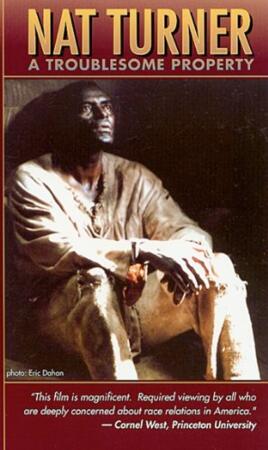
August 21st, 1831, in Virginia, Nat Turner led a slave rebellion, hoping to inspire a slave uprising in the south. Several dozen whites were killed before the revolt was defeated. Turner was later capture, tried and hanged.
Soon after Turner’s execution, a local lawyer, Thomas Ruffin Gray, took it upon himself to publish “The Confessions of Nat Turner,” derived partly from research done while Turner was in hiding and from prison conversations with Turner before trial.
185 years later, many of us who had been waiting for years, for a definitive film based on Nat Turner’s historic revolt to be produced, have likely already seen Nate Parker’s film, “The Birth of a Nation,” which collected 2 top awards at the Sundance Film Festival earlier this year, where it made its world premiere, drawing much critical acclaim, as well as controversy over Parker’s past.
The film was picked up by Fox Searchlight (after a reported bidding war) for a whopping $17.5 million, and was released earlier this fall, but failed to live up to the initial hype thanks in part to the very public wrangle over allegations of rape that ended with Parker’s acquittal, 17 years ago. I suspect the film will do better when it hits the home video market in a couple of months.
But before Parker’s film, maybe the most notable screen work on Nat Turner that currently exists is the hour-long documentary, “Nat Turner: A Troublesome Property,” directed by Charles Burnett (“Killer of Sheep”), and released in 2003, which toured the film festival circuit, and eventually aired on PBS about a year later.
Prior to that release, you will also recall William Styron’s 1967 Pulitzer Prize-winning, though deeply problematic novel, “The Confessions of Nat Turner,” which Norman Jewison almost directed an adaptation of, in the late 1960’s, starring James Earl Jones as Nat Turner. Styron, to put it simply, imagined Turner as a fictional character, and as you’d expect, the project was met with what Jewison called an “incredibly angry exchange of ideas” with black revolutionaries at the time, who objected to the idea of a white director directing the film, as well as distortions of historical facts in Styron’s book.
Needless to say, the film never happened, and thank goodness for that!
But a film that did happen, Burnett’s “Nat Turner: A Troublesome Property,” is now streaming on Netflix and Amazon Prime, as I learned over the weekend. The docu-drama examines how the story of Turner and his revolt have been continuously re-told since 1831. Historians Eugene Genovese and Herbert Aptheker discuss how the figure of Turner became a metaphor for racial tension. Religious scholar Vincent Harding and legal scholar Martha Minow reflect on America’s attitudes towards violence. Professor of psychiatry and race relations expert Dr. Alvin Poussaint and actor Ossie Davis recall how Nat Turner became a hero in the black community. And when William Styron published his 1967 Pulitzer Prize-winning novel, “The Confessions of Nat Turner”—inventing a sexually charged relationship between Turner and a white teenaged girl he later killed—it unleashed one of the most bitter intellectual battles of the 1960s.
A unique collaboration between MacArthur Genius Award feature director Charles Burnett, acclaimed historian of slavery Kenneth S. Greenberg and Academy Award-nominated documentary producer Frank Christopher, “Nat Turner: A Troublesome Property” utilizes a fresh structure by interspersing documentary footage and interviews with dramatizations of different versions of the story, using a new actor to represent Turner in each. The filmmakers interviewed a broad range of contemporary African American and white descendants of those involved in the revolt, historians, writers and artists, and weave these interviews with dramatic recreations based on folklore, novels and plays—reflecting the multifaceted legacy of Nat Turner in America today.
So check out “Nat Turner: A Troublesome Property” now streaming on Netflix and Amazon Prime. Watch a preview below:
